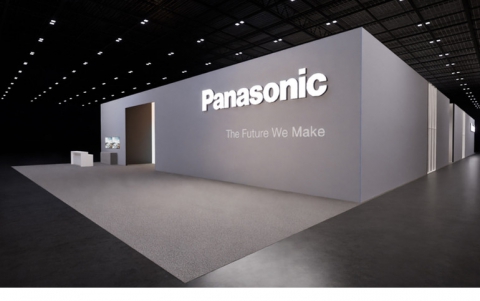
Microsoft, Yahoo Link Their Online Instant Messaging Systems
Yahoo and Microsoft released software that built a bridge between their previously exclusive online instant messaging (IM) systems.
The move fulfilled a promise the US Internet titans made late last year and marked the
first time rival global messaging service providers arranged to co-mingle members.
It also signaled a continued erosion of the walls dividing users of IM and mobile telephone text messaging services, according to lead analyst Matt Rosoff of Directions on Microsoft.
"I think that within the next five years you will see interoperability between IMs, and the text messaging you get with phones," Rosoff said in an interview with AFP.
"That is the best possible world for consumers _ where I send you a message and it just finds you where ever you are."
Windows Live Messenger and Yahoo Messenger with Voice users in more than 15 international markets could get "beta" test versions of the interoperability software at http://messenger.yahoo.com or http://ideas.live.com, according to the companies.
The union promised to create the world's largest IM community by merging nearly 350 million IM accounts, Microsoft and Yahoo said in a combined release.
The beta program would be available in Argentina, Australia, Brazil, Canada, China, France, Germany, Hong Kong, India, Italy, Korea, Mexico, Netherlands, Singapore, Spain, Taiwan, Turkey, the United Kingdom and the United States.
"We're proud to deliver this latest advancement in IM services that empower people to communicate with virtually whomever they want, wherever they want and whenever they want," Blake Irving, corporate vice president, Windows Live Platform at Microsoft, said in a release.
The alliance of Yahoo and Microsoft was a "logical tie-up" between the IM providers ranked second and third behind America Online (AOL) in the United States, Rosoff said.
Yahoo and Microsoft announced last year that they would link their IM services by the second financial quarter of 2006.
"They are just a little late," Rosoff said. "It is not anything surprising."
AOL has resisted opening its IM system in the past but could change tack after its recent decision to provide all of its services except internet access to broadband users for free, according to analysts.
"They might break down the IM barrier too," Rosoff said of AOL, which is owned by Time Warner. "AOL was resistant to opening the IM system because it had a big lead, at least in the United States."
Internet juggernaut Goggle invited rival IM providers to link with its latest messaging system, which hasn't caught on with users.
Exclusivity among IM services resulted in a "natural network effect" with friends, co-workers, and other groups compelled to join with the same provider in order to communicate, Rosoff said.
The trend toward universal messaging included Microsoft and Vodaphone enabling people to text message Vodaphone mobile telephone customers in Europe using computers with Windows Live, according to Rosoff.
MSN is reported to be the most popular IM service worldwide.
It also signaled a continued erosion of the walls dividing users of IM and mobile telephone text messaging services, according to lead analyst Matt Rosoff of Directions on Microsoft.
"I think that within the next five years you will see interoperability between IMs, and the text messaging you get with phones," Rosoff said in an interview with AFP.
"That is the best possible world for consumers _ where I send you a message and it just finds you where ever you are."
Windows Live Messenger and Yahoo Messenger with Voice users in more than 15 international markets could get "beta" test versions of the interoperability software at http://messenger.yahoo.com or http://ideas.live.com, according to the companies.
The union promised to create the world's largest IM community by merging nearly 350 million IM accounts, Microsoft and Yahoo said in a combined release.
The beta program would be available in Argentina, Australia, Brazil, Canada, China, France, Germany, Hong Kong, India, Italy, Korea, Mexico, Netherlands, Singapore, Spain, Taiwan, Turkey, the United Kingdom and the United States.
"We're proud to deliver this latest advancement in IM services that empower people to communicate with virtually whomever they want, wherever they want and whenever they want," Blake Irving, corporate vice president, Windows Live Platform at Microsoft, said in a release.
The alliance of Yahoo and Microsoft was a "logical tie-up" between the IM providers ranked second and third behind America Online (AOL) in the United States, Rosoff said.
Yahoo and Microsoft announced last year that they would link their IM services by the second financial quarter of 2006.
"They are just a little late," Rosoff said. "It is not anything surprising."
AOL has resisted opening its IM system in the past but could change tack after its recent decision to provide all of its services except internet access to broadband users for free, according to analysts.
"They might break down the IM barrier too," Rosoff said of AOL, which is owned by Time Warner. "AOL was resistant to opening the IM system because it had a big lead, at least in the United States."
Internet juggernaut Goggle invited rival IM providers to link with its latest messaging system, which hasn't caught on with users.
Exclusivity among IM services resulted in a "natural network effect" with friends, co-workers, and other groups compelled to join with the same provider in order to communicate, Rosoff said.
The trend toward universal messaging included Microsoft and Vodaphone enabling people to text message Vodaphone mobile telephone customers in Europe using computers with Windows Live, according to Rosoff.
MSN is reported to be the most popular IM service worldwide.





















